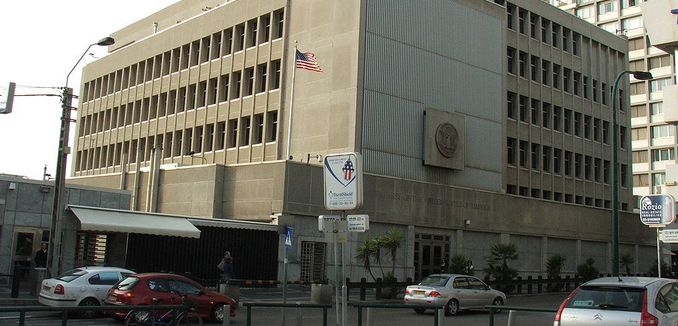Moving the United States embassy from Tel Aviv to Jerusalem could “advance American national goals and interests,” Washington’s former ambassador to Israel wrote Tuesday in an essay for Foreign Policy.
Daniel Shapiro, who served as an envoy to Israel from 2011 until last month, explained that his support for the embassy move stemmed from his understanding of Jerusalem’s history and a “sense of justice for Jewish claims to the city that are far too often called into question.” Moving the embassy to parts of Jerusalem that the international community agrees would remain under Israeli sovereignty in any peace deal with the Palestinians “is one way of acknowledging the centuries of history that link the Jewish people to the city, the questioning of which is closely linked to the denial of Israel’s very legitimacy,” he noted.
From a practical standpoint, it also makes sense to place the embassy in the same city that hosts the offices of Israeli officials, Shapiro observed.
The former ambassador qualified his support for the move by stressing that it must be done in a carefully calculated manner. He acknowledged that since Congress overwhelmingly approved the 1995 Jerusalem Embassy Act, which mandates that Washington relocate its embassy to Jerusalem, each U.S. president signed a six-month national security waiver to delay the move. Shapiro wrote that he agreed with the previous presidents’ decision to exercise their waiver authority “in the interest of pursuing Middle East peace.”
“But I have never believed that arguments for moving the embassy were groundless, or that it must await a final Israeli-Palestinian peace agreement,” he added. If the relocation was executed in a way that didn’t harm the possibility of peace between Israel and the Palestinians, Shapiro wrote, then “it could actually advance the prospects for a two-state solution by shattering self-defeating myths on both sides.” He particularly recommended that it take place in consultation with all interested parties, including the Palestinians, Jordanians, Egyptians, and Saudis.
While Shapiro expressed concern that the move could spark violence by Palestinians and in the Arab world, an IDF intelligence officer told The Times of Israel last week that according to the army’s assessment, the average Palestinian is currently more concerned with internal Palestinian problems than the possibility of the U.S. embassy being moved to Jerusalem.
International law expert Eugene Kontorovich argued last month that moving the embassy to Jerusalem could help the new U.S. administration dilute the legal implications of United Nations Security Council resolution 2334, which declared that Israeli communities in eastern Jerusalem — where the Jewish Quarter is located — are in “flagrant violation” of international law. Unlike Shapiro, Kontorovich recommended moving the embassy to a section of Jerusalem that came under Israeli control in 1967 to achieve this end.
[Photo: Krokodyl / WikiCommons ]




